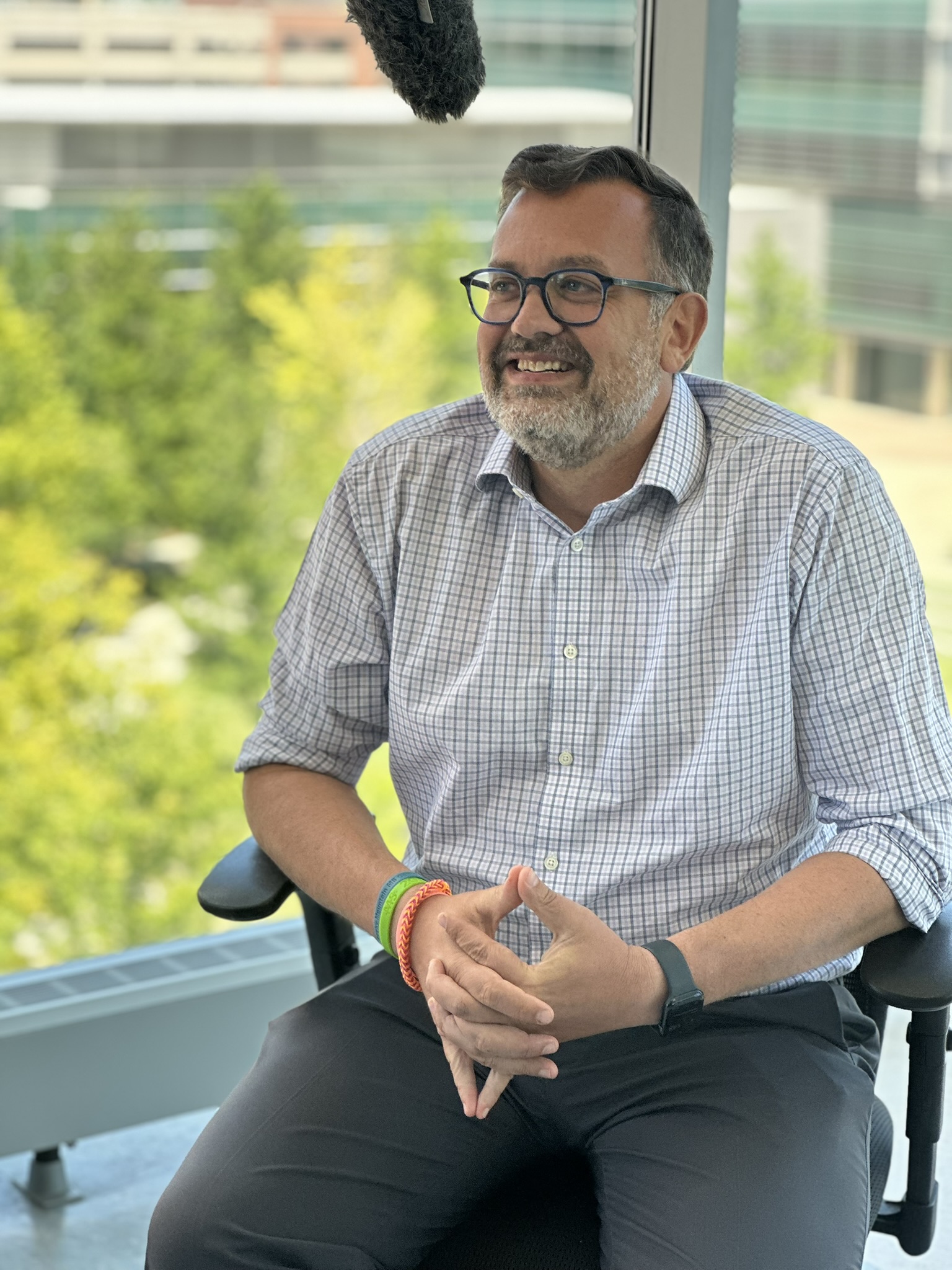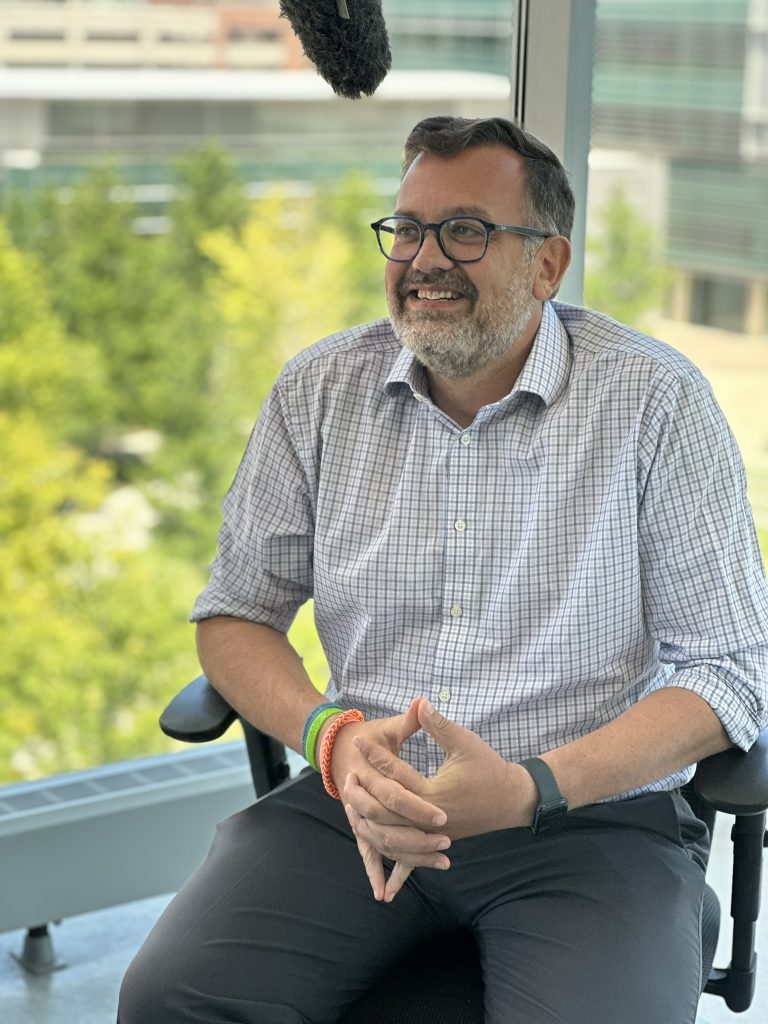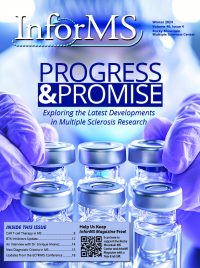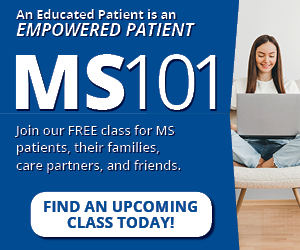
New Medical Director on What’s Next in MS
InforMS Magazine is excited to welcome the Rocky Mountain MS Center’s new Medical Director, Dr. Enrique Alvarez. While the title may be new, Dr. Alvarez is a familiar face in our community. His journey with the University of Colorado began back in 1997 when he started his MD-PhD program at CU Denver. Over the years, he’s become a vital part of the team, blending his expertise in clinical care and research to make a real difference for people living with MS.
Dr. Alvarez also serves as the Section Head for Neuroimmunology and as Vice-Chair for Clinical Research for the Department of Neurology. He’s played a key role in advancing MS treatment, improving patient care, and helping lead research efforts. With a background that bridges neuroscience, immunology, and patient-focused research, he’s well equipped to guide the MS Center’s medical initiatives into an exciting future.
We recently spoke with Dr. Alvarez to hear about his path to this role, his vision for advancing MS research, and some of the promising developments on the horizon.

Dr. Enrique Alvarez
InforMS Magazine: We’re excited to introduce you as the new medical director, particularly as this issue focuses on research. Could you share a bit about your background, what motivates you to do this work, and what you’re looking forward to in this new role?
Dr. Alvarez: I started here at University of Colorado Denver in 1997 as part of an MD-PhD program. I did a PhD in neuroscience and completed my intern year here—that’s the first year of residency. After ten years here, I left in 2007 for a three-year neurology residency and three years of fellowship at WashU (Washington University in St. Louis). I came back in 2013, and I’ve been a clinician here since.
As far as motivation, I think MS is a nice combination of my interests—medicine and research. It’s a disease that affects younger patients, so you can have a long-term impact on their lives. You get to develop good relationships with patients over many years.
There’s also a lot to it. Early on, it’s about managing disease activity, and later, there’s a lot of symptom management. Therapeutics have evolved dramatically during my time. For instance, Tysabri came and went while I was a resident, and the first oral drug, Gilenya, came out early in my fellowship. The field has changed a lot while I’ve been in it, which has been exciting.
I was also an undergrad doing molecular biology and biotech, so the immunology component of the field matched my neuroscience background from the PhD. It all came together as a perfect fit in neuroimmunology. The combination of medicine and science worked really nicely for me.
InforMS Magazine: What are your top priorities for advancing MS research and care over the next few years?
Dr. Alvarez: My interests are less about basic science and more about patient care. I’m focused on understanding how to treat patients, how to sequence drugs, and how to monitor the disease.
One challenge we have now is that with our good drugs, most MS relapses aren’t driven by inflammation like we traditionally think of them—they’re more likely to be pseudo-relapses. On the other hand, most of the inflammation we see on MRIs—90 to 95% of brain lesions, for example—don’t result in symptoms. So, we’re in this weird zone where clinical symptoms aren’t driven by inflammation, and inflammation doesn’t always cause symptoms. Figuring out how to balance that in patient care is important.
Another area is sequencing therapies. Starting with high-efficacy therapies early is great, but as patients get older, risks like dropping antibody levels or increasing infections become more significant. How do we adjust therapy as the disease wanes and other risks rise?
InforMS Magazine: What recent or upcoming developments in MS research are you most excited about?
Dr. Alvarez: There are two big areas coming up next year, both around progression.
One is BTK inhibitors like tolebrutinib. The topline data looks promising, but we need subgroup analyses to see who benefits the most and how much the drug helps overall. For instance, it might help with progression but not with relapses, so we may need to start thinking about combining therapies to address different aspects of the disease. That’s something we haven’t done much in MS but might need to explore.
Another is CD20 therapies. There’s some evidence suggesting higher doses might be better for progression, even though they may not matter much for relapses. For example, in the Ocrevus trials, smaller people, who got a higher dose per kilogram, seemed to do better. Trials are ongoing to test higher doses, and we should see results next year.
InforMS Magazine: We often hear questions about what can be done for progressive MS. Can you talk about what patient care might look like for someone in the progressive phase, where answers have been limited?
Dr. Alvarez: Patient-centered care is always a balancing act. It doesn’t mean just doing whatever the patient wants. We have to be careful to ensure we’re doing things safely and effectively in the long term.
For example, patients often feel better on steroids, and if we were purely patient-centered, we might give them steroids all the time. But that’s not safe. It’s about having a dialogue with patients and finding the right balance based on the data we have.
Take CD20 therapies and the “crap gap,” where symptoms return before the next dose. Patients might want higher doses or more frequent infusions, but that could drive antibody levels lower and limit long-term use of these treatments. We have to weigh those trade-offs carefully.
Future care might involve using BTK inhibitors like tolebrutinib alongside CD20 therapies. These combinations could address different aspects of the disease, but figuring out how and when to use them will be a big challenge.
InforMS Magazine: What do you see as the biggest challenges in the field over the next few years?
Dr. Alvarez: Progression is the main challenge. There’s also a lot of interest in CAR-T therapies, not just for MS but for other autoimmune diseases. For example, Dr. Amanda Piquet has a big CAR-T trial for stiff person syndrome. There are several CAR-T studies in MS and myasthenia gravis also.
These therapies are advancing quickly. We often call them CAR-Ts, but there are also CAR-NK cells and off-the-shelf allogeneic products. Questions about how to use them, whether chemo induction is needed, and other issues will need to be worked out.
InforMS Magazine: Anything you’d like to add?
Dr. Enrique Alvarez: I’d like to mention the importance of working with Rocky Mountain MS Center nonprofit. We may have all the knowledge in the world, but without being able to spread the data, to get the information out, and the educational component, it doesn’t do any good.
So, having that collaboration with the Rocky Mountain MS Center and being able to provide those extra services around education, at the beginning stages of the disease, but also as new things come up. This is one of the things that makes the collaboration so special.






